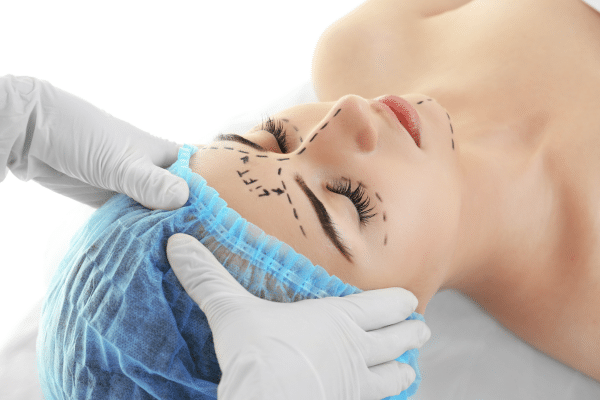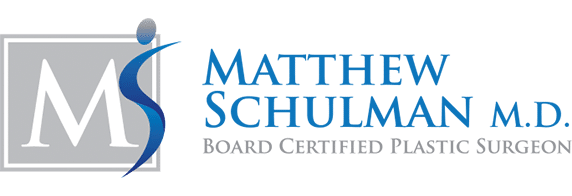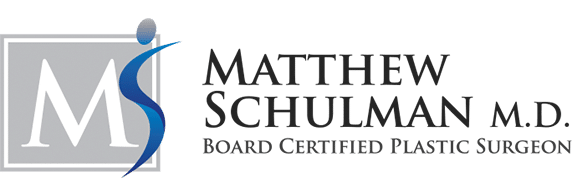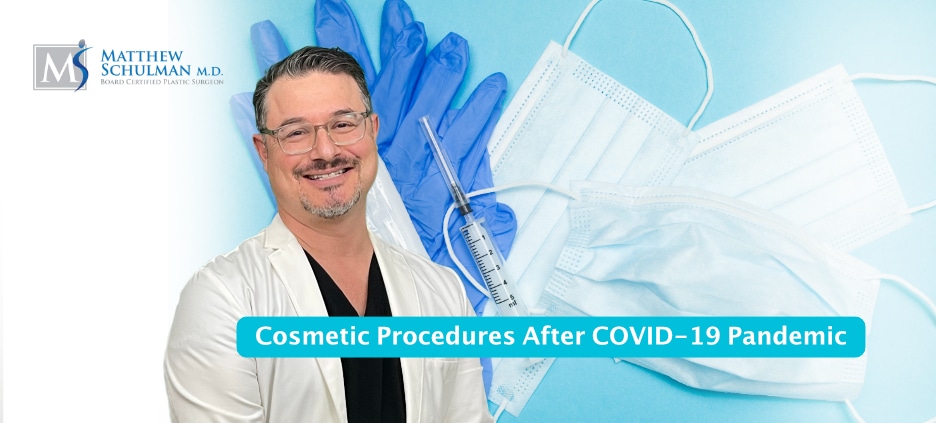The year 2020 has certainly been a difficult one. COVID-19 has changed the way we live and will continue to affect how we live for years to come. While some areas of the United States are seeing a recent uptick in the number of COVID cases, other areas continue to see a decline.
For those areas where the number of COVID cases remains low and in a decline, there is push to restart “normal” life. For most, this means back to work, back to school, back to retail shopping, and back to seeing friends and family.
For others, it also means, resuming the desire for Plastic Surgery in New York City . This may include non-surgical plastic surgery treatments such as Botox, fillers, facials, and lasers. It also includes surgical plastic surgery treatments such as liposuction, breast augmentation, mommy makeovers, tummy tucks, and Brazilian butt lifts.
In fact, the demand for cosmetic surgery procedures is very high. Let’s discuss why there is such an increased demand for plastic surgery, both surgical and non-surgical treatments, and whether or not this increased interest in plastic surgery is something that is safe to do right now.
Please keep in mind that these thoughts on plastic surgery post COVID are based on information that I have at this very moment, and things may change as facts change.
Demand for Cosmetic Procedures is High
The fact of the matter is that people have been isolated and socially distant for the past four months. This means that they have been unable to receive any of their routine beauty care. Many have been without facials, laser treatments, chemical peels, and botox for a longer stretch than ever before. The wrinkles and irregular pigmentation has likely returned, and the body hair is growing back. Many of these plastic surgery treatments require on-going sessions, and missing 4 months of treatments may set things back for them. As the social distancing restrictions lessen, people are eager to resume their regular beauty routine.
Additionally, during isolation, people may have become more self-critical. When we have nothing but time on our hands, sometimes it leads to us analyzing, or over-analyzing, ourselves. So, over the past four months, people may have become aware of things that they dislike about themselves and that they would like to change or improve upon. Scrolling photo-shopped pictures of Instagram “influencers” all day long certainly is not helping. After four months of isolation, sometimes a non surgical plastic surgery as simple as a botox injection is what people need to help them feel “normal” again.
The biggest reason why the demand for cosmetic procedures is at such a high level is time. Many people have more free-time than ever before. Schools are out. They may be out of work, have reduced work hours, or working from home. This means that school and work may not be a barrier for them anymore. They no longer have to worry about taking time off to heal and recover from a cosmetic surgery. Their annual summer vacation is likely cancelled due to travel restrictions, so many people have a two to three week block of time that had already been cleared on their schedule that can no be used to recover from a cosmetic surgery.
Now, I am certainly not saying that the social distancing associated with COVID-19 has made people who would never consider having plastic surgery now have plastic surgery. But, the circumstances of the last four months have likely helped people who have been thinking about having a plastic surgery finally take the next step.
What common plastic surgery procedures are popular since COVID?
A tummy tuck is a popular cosmetic plastic surgery currently after the rise of COVID. This is to be expected. a tummy tuck is consistently a popular cosmetic plastic surgery. A tummy tuck is often part of a mommy makeover and it currently one of the most popular surgeries for those pursuing cosmetic surgery. Another cosmetic plastic surgery that has grown in popularity is eyelid surgery. This cosmetic surgery has seen an increase in popularity in recent years. This makes sense considering the impact of COVID on the interest in cosmetic plastic surgery. More people are at home on their phones, using video calling. People are seeing their eyes up close and personal more often than usual. This has many considering eyelid surgery as a possible cosmetic plastic surgery. An eyelid surgery addresses sagging skin around the eye in order to help create a more pleasing appearance. Many are very interested in this cosmetic plastic surgery since COVID and the rise of work from home. Breast augmentation is, of course, always a popular cosmetic procedure. Whether a breast augmentation with fat transfer or a breast augmentation with breast implants, a breast augmentation is always a popular procedure.
So, is it safe and what precautions need to be taken?
When we discuss whether or not a cosmetic surgery is “safe” to have during a COVID-19 pandemic, we are really talking about the risk of transmission between you and the medical staff during the plastic surgery; “If I get botox injections, am I at risk for catching COVID?”
Plastic surgeons specialize in making sure their patients are safe, and their offices are pristine for all their cosmetic plastic surgery patients. Surgical and non-surgical plastic surgery procedures can be done safely during this COVID-19 pandemic, but there are several important steps that you and your doctor need to take. Some cosmetic surgery procedures carry higher risks than others. Cosmetic surgery procedures centered around areas of the body where the virus lives, such as your nose, mouth, throat, and lungs, carries a higher risk than plastic surgery focused on the breast and body. Also, these plastic surgery procedures can only be performed in geographic regions where it is allowed, based on the current number of COVID-19 cases.
You need to be COVID-free
A board certified plastic surgeon will tell you this is the most fundamental thing to be concerned about when considering cosmetic surgeries. You want to be sure that you do not have COVID-19 before your plastic surgery. This means that you are not actively infected. You want to be sure that you are without the most common symptoms of COVID-19. This includes fever, sore throat, cough, loss of taste or smell, fatigue, body aches, nausea, vomiting, diarrhea, skin rashes, etc.
Because not everyone infected with COVID-19 has symptoms, before your plastic surgery, you also want to be sure that you have not been in contact with anyone who has had COVID within the previous 14 days or traveled to high risk countries or states. The list of high risk regions changes almost daily, so it is important to familiarize yourself with the current list on the CDC website. You will be required to wear a mask while in your your doctor’s office for your plastic surgery as well.
Your Doctor’s office should be COVID-free
The staff at your doctor’s office should be taking the same precautions to make sure that everyone who you will encounter during your visit is also COVID-free. This means that the staff will be screened for COVID symptoms daily and also subjected to routine testing. The staff should also be wearing masks at all times to reduce your risk of exposure during your cosmetic plastic surgery, since again, some people may be asymptomatic COVID carriers.
Medical offices are also taking precautions with any non-patient who enters the office. This means that entry to the office will be restricted to only patients and essential people. If someone doesn’t need to enter the office, they will be asked to stay outside. This includes delivery persons, postal workers, friends or family of patients, etc. Anyone who needs to enter the office will be subjected to a screening process to detect any COVID symptoms BEFORE they are permitted inside.
Social Distancing will occur inside the office and operating facility
Inside the office and plastic surgery operating facility of a board certified plastic surgeon, staff and patients will be socially distanced. Plastic surgery patients will come to the office alone. No friends or family will be permitted, in an attempt to reduce the risk of exposure and transmission.
Plastic surgery appointments will be spaced-out in a manner so that you should be the only patient in the office and any given time. This means that instead of there being 3-4 plastic surgery patients scheduled per hour, there may only be 1 patient per hour. This will eliminate your exposure to other plastic surgery patients and it will allow for complete disinfection of the room between plastic surgery patients.
However, this also means that appointments for your non-surgical procedure or plastic surgery consultation will be much more limited, so expect there to be a much longer wait to get into the office.
The waiting room will also be modified. You will find six feet distance between chairs and couches will be for one person only. Items that can be a transmission point for the virus, have also been removed. These include magazines and skin care samples.
Plastic surgeons will look different
Plastic surgeons will be wearing full Personal Protective Equipment (PPE). These include a mask and gloves. Depending on the specific procedure you will be getting, plastic surgeons may also have on a protective gown and a face shield. Plastic surgeons specialize in making sure their patients are safe and comfortable, this is no different post COVID.
Additional Precautions will be taken in the Operating Room
During a surgical procedure, additional precautions will be taken. These precautions are based on what we know today about the virus and how it can be spread. Your anesthesiologist for your plastic surgery will be protecting him or herself with a full face shield. You will have a surgical mask that will remain on throughout the entire plastic surgery procedure. The number of people in the plastic surgery operating room will be minimized during the times carrying the most risk for transmission of the virus – going to sleep and waking up.
The air circulation in the plastic surgery operating room will be modified to allow for additional filtration of the air so that any airborne virus is filtered out of the room. The operating room for your plastic surgery is always thoroughly cleaned between patients, but cases will be spread out to allow more time to do so. Essentially, every single plastic surgery patient will be treated as if they have the virus, and this is something we call in medicine “universal precautions”.
There also may be a limitation on the specific plastic surgery procedures that can be done in the plastic surgery operating facility. Plastic surgery procedures involving the nose remain at the highest risk, so you should check whether your surgeon is performing plastic surgery procedures like rhinoplasty.
Should you get tested for COVID-19?

It is possible that you will have difficulty.
More fundamental is the significance of the test. Keep in mind that not everyone who is infected with COVID-19 will have a positive test. There still will be false negatives, which is why it is so important to treat everyone as if they have it. Test results take anywhere form 2-5 days to get back.
So, if you get a negative result, it doesn’t mean you haven’t been exposed during the days between your test and your results. So, if you are going to be tested in preparation for your cosmetic surgery or procedure, you really need to quarantine yourself from the time of the test to the time of the cosmetic surgery. This can be difficult.
Until we had rapid tests that give results in under 2 hours and are 100% accurate, there will always be an issue with testing. Keep in mind that this is referring only to the RNA tests that specifically test for the virus. This is not referring to rapid antibody tests that are available.
Rapid antibody tests have their own shortfall. First of all, it only detects if you have antibodies to the virus, presumable indicating that you had been infected in the past. These tests are readily available and results can come in as little as a few minutes. However, the accuracy can be low. Also, there can be false positives, meaning that it can show antibodies that you have to other coronavirus, like the common cold, and not COVID-19. Most importantly though is the significance of a positive antibody?
What does it really mean if you have antibodies? All it means is that you MAY have had COVID-19. But, we don’t know if that means you cannot get it again. Many suspect that there is not going to be long-term immunity to COVID-19. You will likely be able to get it again in the future. So, while antibody testing is important if figuring out how many people may have had COVID-19, it probably means very little in terms of keeping you safe during your cosmetic surgery.
As you can see, there are some things we still do not understand about COVID-19, but medical offices that perform cosmetic surgery are set up to protect you as best as possible. In fact, I would argue that having a cosmetic surgery in a medical office, with trained medical professionals who understand infectious disease and sterile technique is exponentially less risky that going to the supermarket or the park.
Contact Schulman Plastic Surgery New York City
To learn more about having your surgical or non-surgical plastic surgery procedure in New York City with Dr. Matthew Schulman, please contact our New York City Plastic Surgeon office today.




